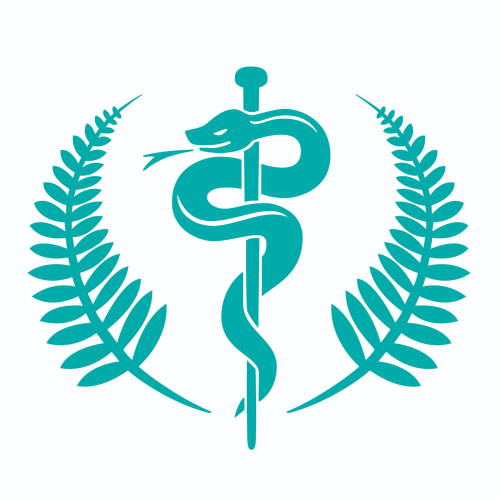Mai i te Tumuaki | From the Chair
 Meet the minds shaping our future: Introducing a new series of Council member profiles.
Meet the minds shaping our future: Introducing a new series of Council member profiles.E ngā mana, e ngā reo, e ngā karangatanga maha, ngā mihi maioha ki a koutou - warmest greetings to you all.
As the Chair of the Council, it is my pleasure to introduce a new series of feature profile articles from interviews with our Council members. My goal is to deepen the connection between the Council and the profession by showcasing the diverse and impactful experiences of our members. This inaugural article features David Ivory, whose extensive background in education, law, and healthcare governance significantly enriches our work.
 Website link | Our current Council members
Website link | Our current Council members
Interview David Ivory: A Council member shaping healthcare governance
Professional background and diversity
Q: David, you have an extensive background in both education and law. How do these fields intersect with your current roles in healthcare governance?
I hold a firm belief that quality education and healthcare are key building blocks to strong, resilient communities. My work in education has focused on empowering marginalised groups and enhancing community engagement, achieving recognition both nationally and internationally. But more importantly, role modeling what is possible within education.
My experience in education continued to roles within the New Zealand Public Service Association and the Office of the Parliamentary Ombudsman. My entry into health governance began with my appointment to the Te Kaunihera Manapou Paramedic Council. Having a legal background and governance experience with community groups enabled a solid contribution. In 2022, I joined the Council as a lay member, where my diverse insights and legal background have been invaluable.
Council contributions and goals
Q: Since joining the Council, what initiatives or projects have you found most engaging or important? What future projects are you excited about?
I am deeply impressed by the Council's ongoing work and its proactive approach to addressing key areas. The commitment to cultural safety and equity is particularly significant in the current political climate. The community-based attachments training provide, in my view, very rich opportunities for engagement while needing a little more mahi by some providers to fully meet the standard.
Having served on accreditation panels, I've gained valuable insights into educational practices. Overall, providers are meeting and often exceeding Council standards. The preparation, care, and respect exhibited by all parties during these processes are of a high calibre.
Governance experience
Q: With your broad governance experience, particularly in education and health, what unique perspectives do you bring to the Council?
First up - affirmation of Council practices and processes, right-touch regulation. From my first meeting, every issue brought before the Council, whether it relates to performance, conduct, registration, or administrative matters, is thoroughly and concisely presented by the staff. Collectively, the Council ensures that the best possible decisions are made.
I contribute community insights to the Council, drawn from my roles with community foundations such as Rātā Foundation and Lotteries. My interactions with these groups enrich our collective decision-making with diverse perspectives.
Additionally, I bring a personal perspective through my experience with a learning disability. I often read that such a disability is a gift. I don’t agree, it can’t be put down or returned to the department store – it’s always alongside you requiring attention and is an added complexity to each day. I bring this lived experience to the Council and it provides me with a different understanding and insight.
Community involvement
Q: As Chairperson of the Haeata Community Campus and other roles, how do you see the relationship between community education and community health?
Haeata Community Campus is a mega Kura operating in an area of high deprivation and is an amalgam of cultures. I see the value of health practitioners each day. The Haeata Hauora teamwork alongside educators provides the best possible learning opportunities. I also see this relationship evident in governance work at Southern Health which operates Kura in communities across the motu.
I also have the privilege of chairing Halswell Residential College and Westbridge Residential School, where both Kura have akonga with mild intellectual disabilities. The relationship between akonga success and good primary health care is evident daily.
Personal passions and balance
Q: Being involved in many governance roles, how do you manage your time effectively, and what do you do to unwind and maintain a balanced life?
Maintaining a balance between personal interests and professional responsibilities is crucial for mental and physical well-being. I am in the fortunate position of being able to regulate the flow of mahi and can complete most remotely which allows flexibility. I enjoy mountain climbing, biking, walking and also basketball.
Lay member insights
Q: As a lay or public member of the Council, could you share how your perspective contributes to the Council’s work and decision-making processes? How do you see your role influencing the integration of public interest and healthcare governance?
I feel the magic or beauty is in the kōrerorero. In my time on the Council, I have experienced two amazing chairs who are excellent facilitators in ensuring all voices are equally heard and valued. This creates a healthy and safe collective decision-making environment. I see my role as being well prepared, contributing, and where necessary strongly advocating for my view.
In closing, David's contributions to the Council exemplify the diversity of experiences and the commitment our members have to medical regulation. His background and dedication to community empowerment and cultural safety continue to inspire and shape the Council's direction.
Through this interview series, I hope to offer our medical community deeper insights into the individuals on our Council, to foster greater understanding and collaboration across our profession.
Nō reira, kia haere haumaru tonu koutou i ō koutou mahi, i ō koutou kāinga. Kia manawanui.
Dr Rachelle Love
Tumuaki | Chair

